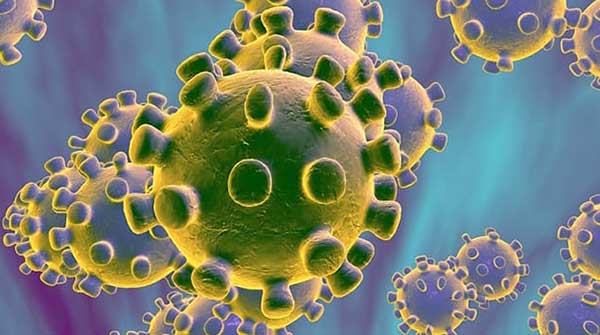 I led a trade delegation in Guangdong, China, in December 2002. Business and life carried on as usual even though a new disease, SARS, had begun infecting and killing people in the province a month earlier.
I led a trade delegation in Guangdong, China, in December 2002. Business and life carried on as usual even though a new disease, SARS, had begun infecting and killing people in the province a month earlier.
As visiting Canadians, we weren’t worried at all because we knew absolutely nothing about the epidemic and had never heard of SARS. I don’t know whether the officials we dealt with had been advised not to brief us on the disease and its risk or if they had also been kept in the dark.
Once we returned to Canada, SARS became big news. Fortunately, none of us got sick and Canada did an exemplary job of managing the relatively few SARS cases in this country. Around the world, 8,098 people were infected and 774 died, so the mortality rate of those who contracted the disease was about 10 per cent. There were 44 deaths in Canada.
The new coronavirus that has recently emerged from Wuhan, China, has been compared to SARS. Both made the leap from animals to humans and became really dangerous once they started being transmitted from human to human.
The Wuhan virus appears to be even more contagious than SARS but the symptoms are less severe. The mortality rate among confirmed cases is about two per cent and most of the deaths so far have been among people who already had an underlying condition like pneumonia before they picked up the Wuhan bug.
The Coronavirus – 1918 all over again? by Dr. Jane Orient
Unlike in 2002, China is now being very open about the disease and is taking drastic action to control it, such as quarantining the entire city of Wuhan. Even so, the World Health Organization has declared a world health emergency and great concern, if not quite panic, is beginning to spread.
Though any deaths from a fast-spreading new disease can be frightening, panic isn’t justified. Most cases are mild and of short duration. The death rate is probably overestimated at two per cent since many of the mild cases are probably not reported. To put things in context, ordinary pneumonia usually kills five to 10 per cent of its victims, rising to 30 per cent among older, more vulnerable populations.
Although there’s no vaccine for the Wuhan virus nor is it likely that one would be developed before the epidemic has run its course, there are still things we can do to avoid the disease and minimize its impact.
The usual hygiene measures still work. Avoid areas where the disease is rampant. Wash your hands and cough into your elbow. You know the drill.
Photo disinfection is relatively new technology being used to fight antibiotic-resistant organisms in Vancouver hospitals and elsewhere. It’s effective against all bacteria, viruses and fungi, new or old, and is available through Ondine Biomedical, a Vancouver company. Photo disinfection will work against the Wuhan virus.
But the real solution for epidemics like SARS and the Wuhan virus is to cut them off at the source.
Diseases like these arise in wild animals and can spread to domestic animals. Think of bird flu. The Wuhan virus was first noted in the live animal market in Wuhan, where food animals domestic and wild are close to each other and to people.
The Chinese government has asked the population not to eat wild animals. This bumps up against Chinese tradition where such animals are considered delicacies. An expression in Guangdong province since well before SARS is that the people there will eat anything with legs except a table and anything that flies except a 747.
But avoiding wild animals will enable us to avoid their diseases.
Going one step further and breaking with long-standing Chinese tradition would be to eliminate live animal markets, which have incubated much disease. Such markets arose before the Chinese had access to refrigeration. The only way to keep meat fresh was to keep the animal alive until just before consumption.
Methods used in industrialized countries to slaughter, refrigerate and freeze meat could replace the live animal markets and greatly reduce the introduction of new viruses from animal sources.
An even more radical way to avoid new viruses is to reduce or eliminate the consumption of all animals by encouraging more vegetarian diets. Such a dramatic shift is not likely to happen in the near future but it would have many positive effects on the health of the population beyond just avoiding epidemics.
Troy Media columnist Roslyn Kunin is a consulting economist and speaker.
The views, opinions and positions expressed by columnists and contributors are the author’s alone. They do not inherently or expressly reflect the views, opinions and/or positions of our publication.


